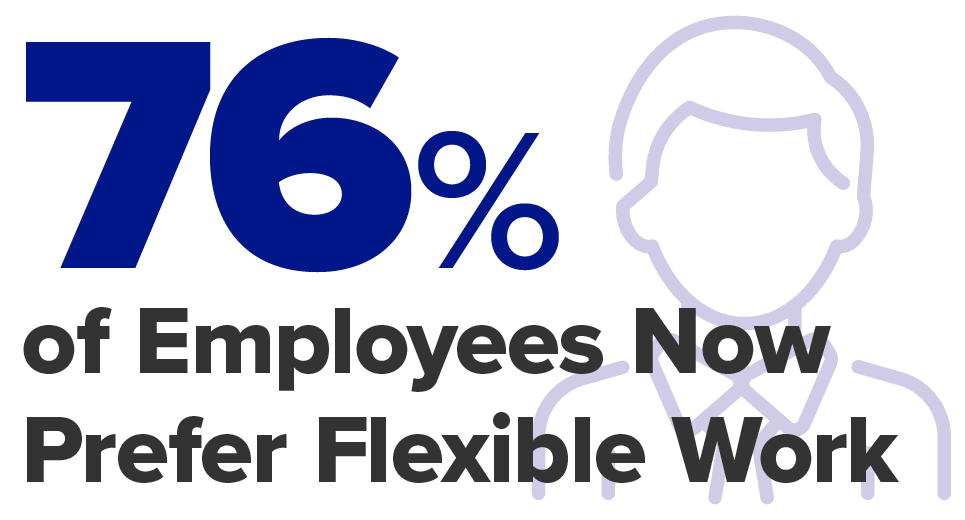
Managing a construction workforce is about more than just payroll and labor tracking.
It’s about hiring the right people, retaining skilled workers, ensuring compliance with labor laws and fostering a productive work environment.
In an industry where high turnover, multi-state compliance and jobsite coordination are constant challenges, Human Resources (HR) management plays a critical role in Human Capital Management (HCM).
According to Fortune Business Insights, while the rise of remote work has significantly impacted HCM across industries, with work-from-home rates jumping from 17% to 44% since 2020 and 76% of employees now preferring flexible work, the construction sector faces its own unique challenges.

Leveraging the right HR management software in construction streamlines recruitment processes, automates compliance tracking, and centralizes employee data management to boost overall workforce productivity.
In this article, we’ll delve into the HR aspects of HCM, its critical importance in construction and how HR technology is revolutionizing the industry.
With the right construction human resources management app, construction companies can streamline workforce operations, reduce administrative headaches and improve overall workforce productivity.
Key Takeaways for Construction Human Resources Managers:
- Recognize that construction HR faces unique hurdles like high turnover and multi-state compliance. Automating core HR processes is crucial for streamlining operations.
- Utilize construction-specific HR software to effectively manage compliance with complex labor laws and centralize employee data.
- Employ HR data analytics to gain insights into hiring trends, turnover rates and workforce availability. This enables proactive planning and helps companies prevent labor shortages.
- Implement self-service portals to enhance employee engagement and reduce HR workloads.
What is Human Capital Management (HCM) and Where Does HR Fit In?
HCM is a strategic approach to workforce management that integrates payroll, HR and labor tracking into a unified, or integrated, system.
While payroll and time tracking are crucial, HR is the backbone of a strong HCM strategy.
Construction human resources management software centralizes essential workforce functions such as:
- Recruitment & Onboarding: Streamlining the hiring process and reducing paperwork.
- Compliance & Employee Records: Managing certifications, training and employment documents.
- Performance & Engagement: Tracking employee development and maintaining high job satisfaction.
- Benefits Administration: Handling health insurance, retirement plans and PTO.
In an industry where projects span multiple states, wages vary by contract and compliance requirements are complex, an integrated HR management system is a game-changer.
The Benefits of HR Management Software in Construction
Modern HR management software in construction integrates recruitment automation, compliance tracking systems, and employee self-service portals to address the unique workforce challenges facing construction companies.
Beyond these core functions, cloud-based construction HR software does more than just reduce paperwork — it enhances every aspect of workforce management and serves as a foundation for a successful HCM strategy.
Here’s how:
#1. Automating HR Processes
HR software automates your human resources processes, from job postings to benefits enrollment, and technology eliminates manual processes that cause errors and waste time.
With digital onboarding, new hires complete required paperwork quickly, while automated time-off requests and HR self-service tools minimize administrative work.
By keeping records updated, HR teams can focus on strategic workforce planning instead of routine tasks.
#2. Ensuring Compliance & Managing Employee Records
Navigating compliance regulations across multiple states and projects is complex.
Construction HR management software simplifies this by securely storing employment documents, tracking certifications and automating audit reporting.
This also helps ensure that employment contracts, prevailing wages and union agreements align with federal and state regulations, reducing compliance risks and administrative burdens.
#3. Enhancing Workforce Planning
HR data analytics give construction companies the insights needed to plan for future labor demands.
By tracking hiring trends, turnover rates and workforce availability, businesses can prevent labor shortages and maintain project timelines.
#4. Centralizing Workforce Data
Managing employee information in construction across multiple jobsites can be overwhelming.
Human resources management apps built for construction act as a centralized hub, providing real-time access to workforce-related data for HR teams, managers and payroll departments.
It also tracks training schedules, sending automatic reminders when certifications need renewal, ensuring that workers remain qualified and compliant.
#5. Empowering Employees With Self-Service Tools
When employees have easy access to their own HR information, engagement improves and HR workload decreases.
Employee self-service portals let workers update contact details, view pay stubs, enroll in benefits and track training progress — all from their mobile devices.
This convenience helps employees stay informed while allowing HR teams to focus on higher-level tasks.
How HR Fits Into the HCM Flow

A well-structured HCM strategy starts with HR.
By managing the entire employee lifecycle — from recruitment and onboarding to compliance tracking and workforce planning — HR software lays the foundation for a seamless HCM process.
With HR systems handling essential tasks such as hiring, training and benefits administration, payroll and labor tracking functions can operate more efficiently.
This integration ensures that every aspect of workforce management, from time tracking to compensation, aligns with business goals and compliance requirements.
Streamline HCM With hrHQ: A Construction HR Solution
An effective HCM strategy starts with the right HR management tools for construction.
Managing a construction workforce is far more than just payroll and time tracking; it involves using human resources practices to navigate high turnover, complex compliance and the critical need for employee engagement.
By automating key HR processes like recruitment, onboarding, benefits administration and performance management, construction companies can significantly reduce administrative burdens and improve overall efficiency.
hrHQ is designed specifically for construction companies, providing the HR backbone that keeps your workforce running smoothly.
Whether you need streamlined onboarding, automated compliance tracking or powerful workforce analytics, hrHQ simplifies HR operations and integrates seamlessly with payroll and time tracking systems, centralizing data and empowering employees through self-service tools.
Ultimately, contractors who implement HR management software in construction as part of their HCM strategy see reduced administrative burdens, improved compliance and a more engaged workforce.
In an industry where skilled labor is essential to success, investing in construction HR technology is investing in your company’s future.
Chat with a specialist today to learn more!
Share Article
Keep on current news in the construction industry. Subscribe to free eNews!



